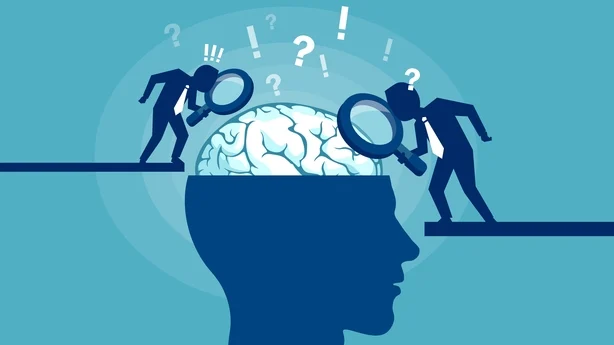Stay updated with the latest beauty tips, trends, and news from our salon experts. Our blog is your go-to source for all things beauty.
If you feel lethargic after mindlessly scrolling through TikTok in bed, you have probably experienced brain rot – which has been named the Oxford Word of the Year 2024.
Six contenders, including the words ‘slop’ and ‘demure’, were shortlisted by Oxford University Press’ language experts to reflect some of the moods and conversations that have shaped the past year, and brain rot came out on top after a public vote of more than 37,000 people worldwide.
The winning word has been linked to mental fogginess, reduced attention span and cognitive decline, but what is it? And is there anything we can do to prevent these negative side effects?

What is brain rot?
"Brain rot is a term people use to describe that foggy, numbed-out feeling you get when you’ve consumed too much low-quality, repetitive content," explains Dr Elena Touroni, a consultant psychologist and co-founder of The Chelsea Psychology Clinic. "It’s that sense of being mentally drained or dulled after hours of scrolling social media, binge-watching shows, or engaging with material that doesn’t challenge or stimulate your mind."
It is actually an old term which has come back into fashion.
"It was American writer [Henry David] Thoreau who used the term in 1854 in his book Walden, which argued for a simple life, being closer to nature, and getting away from the constant chatter of news and trivial matters that was running rife in England at the time," says Craig Jackson, professor of occupational health psychology at Birmingham City University.
"Also, Alvin Toffler wrote in the 1970s that the consumption of too much media was causing future shock in people – a form of mental and cognitive inertia as people could not cope with all of the information that was coming at them."
But what are the reasons behind its drive in popularity in 2024?
"Brain rot captures a shared experience in today’s hyper-digital world, where many of us feel glued to our screens," notes Touroni. "With the rise of short-form content, like TikTok and Instagram Reels, and the increasing time spent online, the term has struck a chord.
"It also reflects a growing awareness of how our digital habits might be impacting our mental clarity and wellbeing."

What are the consequences?
"There is no known physical change to the brain or nervous system in those over-exposed to ‘brain rot’ media, but it is both a cognitive and behavioural change," clarifies Jackson.
And this can encompass a wide range of negative effects.
"The effects can range from difficulty concentrating and reduced productivity to a sense of dissatisfaction or even guilt about wasted time," says Touroni. "It can also impact mental health, contributing to feelings of stress, anxiety, or a lack of purpose.
"Over time, it can make it harder to focus on meaningful activities or connect with deeper thoughts."

Here are six ways to combat it..
1. Set limits
"Limit access to social media and be disciplined," advises Jackson. "Restrict use to a few set times a day and for set periods in length."
2. Find engaging alternatives
"Swap passive scrolling for more enriching activities, like reading a book, journaling, or exploring a creative hobby," suggests Touroni. "These activities allow your mind to engage in a healthier way."
3. Get moving
"Regular exercise is a powerful antidote to mental fog," highlights Touroni. "Even a short walk outdoors can help clear your mind and boost your focus."
4. Take digital detox breaks
"Although a cliché, a digital detox and going cold turkey from social media can change how users view their relationships with social media," says Jackson. "A week free from Twitter use will change how it is viewed going forward."
5. Stimulate your brain in positive ways
"Engage with material that challenges you, like learning a new skill, solving puzzles, or having meaningful conversations," advises Touroni. "It’s about feeding your mind with quality content."
6. Be intentional about media choices
"Choose content that aligns with your interests and values, such as documentaries, thoughtful podcasts or books that inspire you," suggests Touroni.